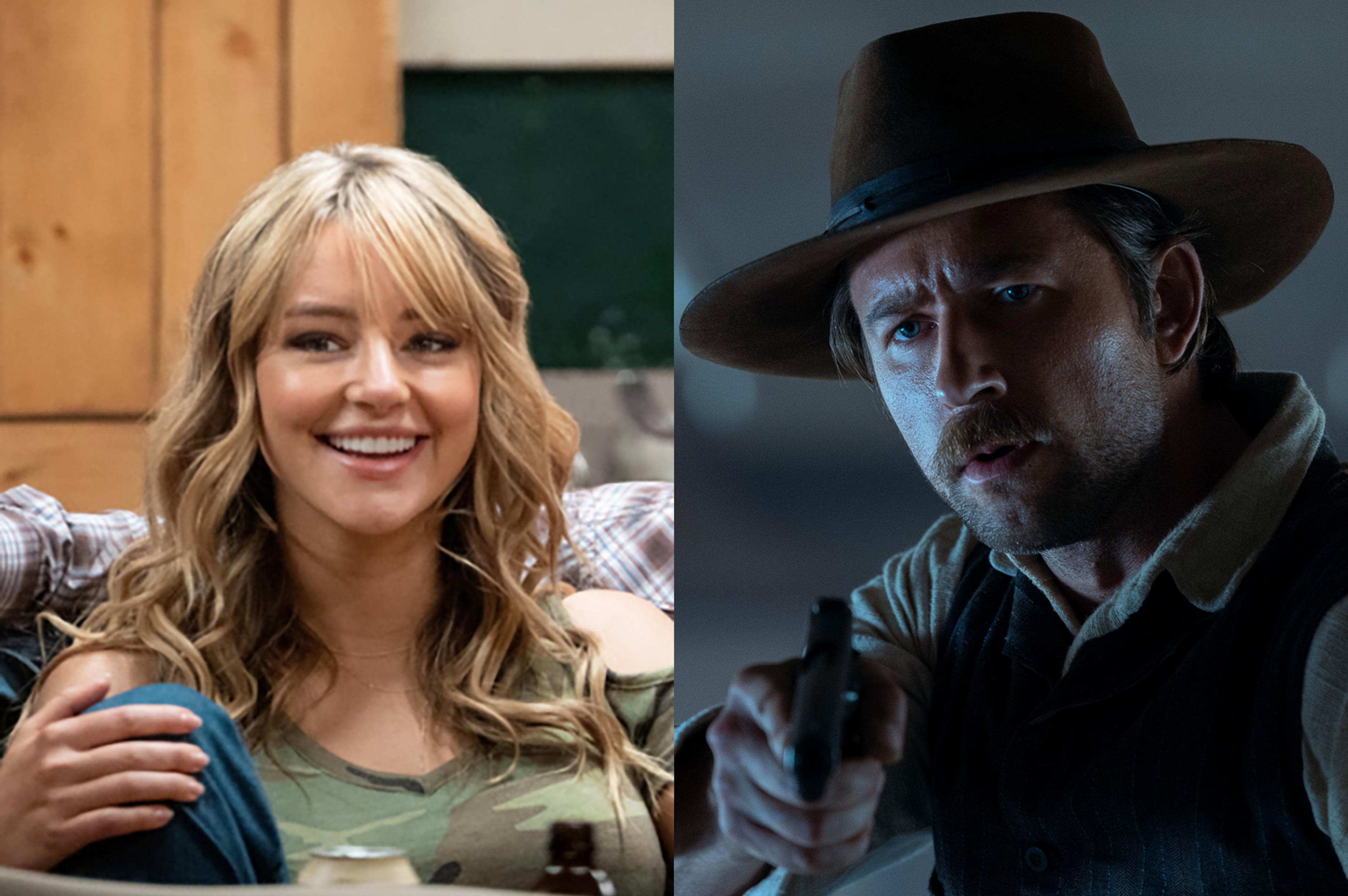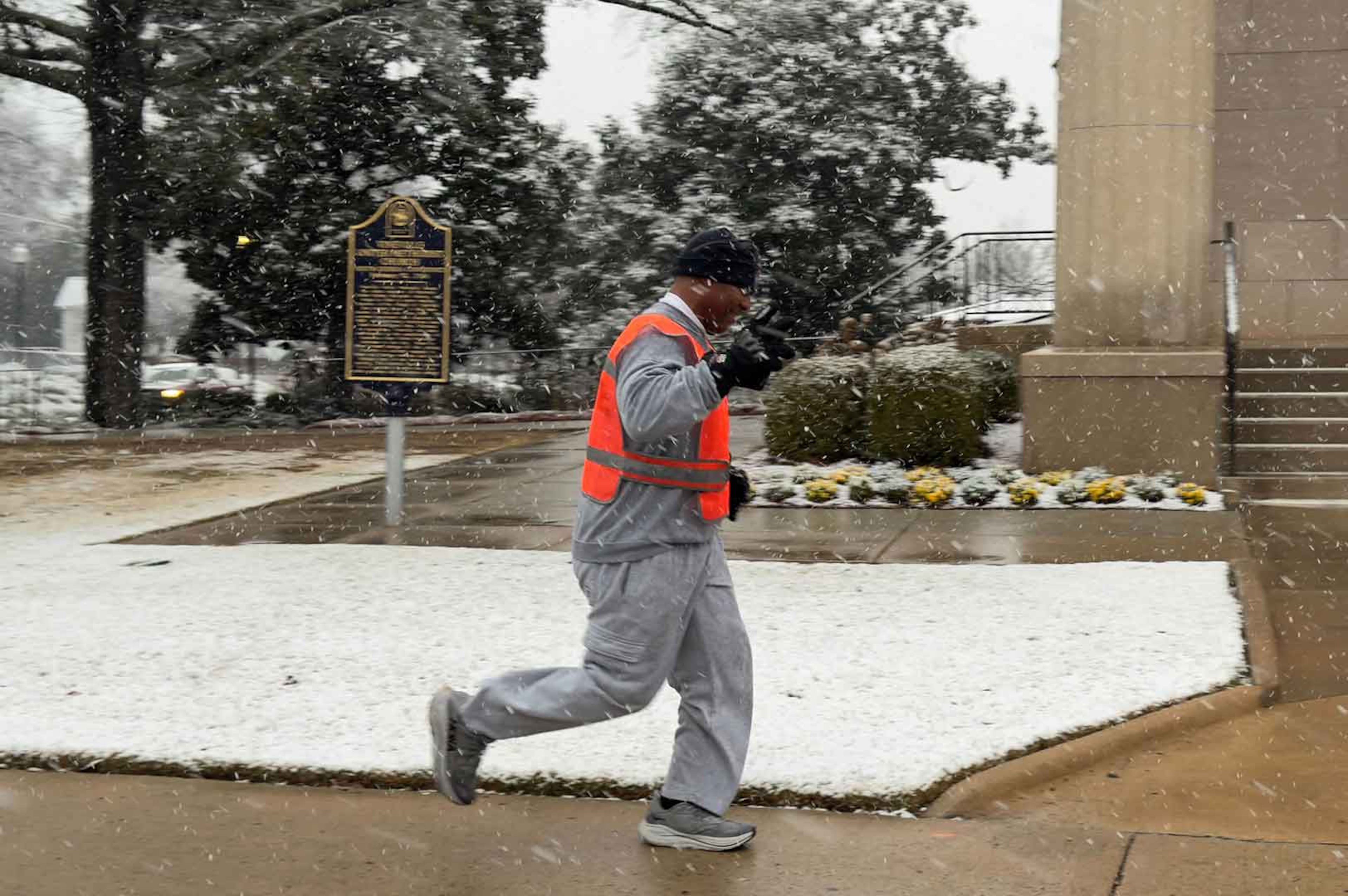Before worldwide fame, RuPaul honed his image in Atlanta

When RuPaul Andre Charles’ mother Ernestine was pregnant in 1960, she met a psychic who told her that the son in her belly would become famous one day.
So she decided to name him RuPaul because, “Ain’t another [expletive] alive with a name like that.” As RuPaul writes in his new memoir “The House of Hidden Meanings” (Dey Street Records, $29.99): “Fame, for me, was less a dream than a predestination.”
His path to worldwide fame, which has led to a string of Emmy Awards for his well-regarded show “RuPaul’s Drag Race,” was a road filled with potholes, diversions and obstacles galore. After growing up in 1960s San Diego to parents who separated, he found his way to Atlanta as a teenager, where he first formed his distinctive voice, his yen for flamboyant artistry and his love for gender-twisting fashion.
RuPaul previously wrote an autobiography in 1995, “Lettin It All Hang Out,” but this new one goes far deeper, far more introspective. “It was very cathartic for me to just get it all out,” he told Vogue. “I feel like I’ve kept up a poker face and held my cards close to my chest my whole life, and I still do that, because it’s a protection mechanism.”
His ultimate goal, he said, was “to show how you can not only navigate a life on this planet, but also create something that isn’t just for you — something that’s exploratory and adventurous and selfless.”

RuPaul’s escapades in Atlanta encompass nearly half of the 239-page book, which covers the first 40 years of his 63 years on Earth. “Atlanta tastes like butter,” he wrote in the prologue, “salty, with a hint of sweetness, the kind that’s gone a little soft sitting out. It’s deliberate, meant to be savored. That flavor, that tang, it’s everywhere.”
The book title comes from one day in Piedmont Park in 1987 when he and his friend, Larry Tee, were coming off an acid trip. Tee told RuPaul: “Libra represents the 12th house of Scorpio’s hidden meanings.”
Later, “I realized it was nonsense,” said RuPaul. “But it was beautiful nonsense, and it stayed with me forever, maybe because I liked the way it sounded ... or maybe it was because of how I saw myself ― as a detective of the universe, searching the house for clues, trying to understand what it all meant.”
Here are some highlights from his time in Atlanta in the 1970s-1980s:
Leaving San Diego: He, his sister Renetta and her boyfriend Gerald moved to Atlanta in the mid-1970s. He saw the city as a frontier for Black entrepreneurs and creatives after reading stories in Jet and Ebony. Gerald’s money-making venture was to buy exotic cars from all over the country, fix them up and flip them in Atlanta. RuPaul loved cars and happily drove around the country to pick up the vehicles and bring them back to Atlanta for Gerald. “It felt like an adventure,” he wrote. “The beginning of something.”
Performing chops: RuPaul joined the Northside School of Performing Arts, where he performed for the first time in drag as Queenie in the Tennessee Williams play “Camino Real.” Wearing women’s clothes “was an extension of me performing for my mother in the living room ... To me, it had no political or sociological import.”
High school dropout: School was not RuPaul’s bag. He never graduated. But a teacher did provide him a mantra he held on to: “RuPaul, don’t take life too [expletive] seriously.”
Back in the day. About Midtown at that time, he recalls that he and his friend Bunny “paraded up and down these very streets with nowhere to be, past the pimps and hookers and club kids whose names we all knew, to symphonies of catcalls and jeers, disco playing in the distant radio.”
Sexual exploration: As a teen, RuPaul visited his first sex shop/adult bookstore, Down Under on Cypress Street, in an area of Midtown Atlanta popular with gay men at the time. When a man propositioned him, he froze and then fled. “As much as it had intrigued me, that place was also the epitome of everything I had been taught to fear in the world.” Later, while visiting his mom in San Diego, he went to a gay center and met a counselor named Andrew, who would become his first sexual encounter. “Kissing Andrew felt like a breakthrough for me,” he wrote. “I had officially crossed over.”

Punk attitude: As a teen, RuPaul embraced punk rock, disco and dancing. His life changed in Atlanta at age 21 in 1982 when he discovered a weekly public access show called “The American Music Show,” hosted at the time by charismatic Dick Richards and James Bond, brother of civil rights activist Julian Bond. It featured drag and music performers, sketch comedy and interviews. “The aesthetic,” RuPaul noted, “was unorthodox and raw,” one of “intellectual irreverence.”
He formed a group called RuPaul and the U-Hauls and became a regular on the show. He made his own costumes, which he noted in the book were “inspired by the contemporary ethos of jungle chic that was being imported from London: Groups like Bow Wow Wow and Bananarama were all the rage in shredded denim and animal prints.” Later, he created Wee Wee Pole, playing clubs all over Atlanta. His mid-1980s routine: “Get high. Have adventures. Get ready for the weekend’s gig. That was the life.”
Ever the marketer, he plastered posters around town emblazoned first with “RuPaul is everything” followed by “RuPaul is red hot.”
First true love: After his first acid trip, RuPaul strolled Midtown and landed on a bench, touching knees with a man named Mark. They moved in together. RuPaul for a time worked as a janitor at a conference center off North Druid Hills Road to pay the bills while he partied. “Mark and I didn’t have much. But we had each other,” he writes. Mark, he said, battled between his feminine and masculine sides, and their relationship eventually crumbled. RuPaul felt both weakened by his needy nature but strengthened by his desire to embrace another human being, a duality between fear and love.
Developing a drag persona: His early drag was a “tribal apocalyptic Thunderdome look.” But he eventually went “high-femme drag,” and for the first time “the way the men were looking at me was feral, aggressive.” He said he felt more masculine in drag than out of drag “because I knew that I could command more power that way ― power being a currency that was typically conferred to men. As a feminine Black man, in violation of society’s norms by virtue of just existing, drag was a way to reclaim the power that I had always been denied.”
Drawn to New York: He performed at clubs like Pyramid and Danceteria in New York City and fell in love with the city. Later, he created a revue and spent a week in NYC performing a show that was “gorgeous and dripping in fringe, showcasing a low-rent Vegas morality, luminous in our fake Bob Mackie best.” He and his friends decided to stay, and RuPaul never looked back.
Nostalgia trip: In 2022 RuPaul came back to Atlanta to visit Bond and pick up VHS tapes of him performing on “The American Music Show,” which he had shipped back to Los Angeles to be digitized. “There’s over a decade of footage on these tapes, all the stupid and brilliant things I did when I was young,” RuPaul writes in the epilogue.
But his visit to Atlanta was bittersweet: “The passage of time is inescapable ― there is no stopping that train. I am homesick for an era that’s gone, for a past that will never come back.”
Ultimately, though, he acknowledges feeling the “love for all the people I got to meet, the club kids who survived the scene with me. ... Love for this body that crashed on park benches and strangers’ floors all those years, this body that did high kicks and twirls in grungy clubs all over the world, this body that’s still carrying me today.”
IF YOU GO
RuPaul. 4 p.m. Sunday, March 10. $76-$141.60 (includes book). The Tabernacle, 152 Luckie St. NW, Atlanta. livenation.com


